14. Autumn 272 BC (continued)
Consul Quintus (econ21) was victorious over the much stronger army of Ashtzaph. 1512 Cartheginians perish for the loss of only 181 men of the consular army. An excellent description of this battle can be found in Titus's letter to Marcella. In the distance vast amounts of Cartheginian troops are moving towards his position and he wisely retreats towards Aleria to await reinforcements. Tribune Augustus Verginius (TinCow) adopts the brave man who saved his life in the Battle for Bononia. His name is Luca Marnilius (Marcus Camillus) and is well known as having the virtues of a true roman.
I send our spy Servius Alimentus toward the west to scout the way for legate Publius Laevinus (Shifty157) and the Legio III Sicilia Aemilia as they begin the march toward Massilia. He is accompanied by tribune Publius Pansa (Glaucus) and tribune Luca Marnilius (Marcus Camillus). I myself march with the Legio I Italia Victrix to Jenuensis to reorganize and reinforce the legion. Tribune Augustus Verginius (TinCow) marches with a praetorian legion into the valley in the northwest of the Alps, after the way has been scouted by our spy Quintis Classicianus (GeneralHankerchief), in order to establish a watch tower on our frontier. Our diplomat Oppius Vintruvius (Wishazu) once more tries to negotiate an alliance with the Iberians, but they refuse. He continues to watch Gaul movements around Massilia. I start the recruitement of two units of italian swordsmen, two units of italian skirmishers and one unit of principes. I have finished training our first assassin. His name is Placus Laelius. As he has to wait for our spy Decius Curtius (Braden) to arrive before embarking on their dangerous mission in Afrika, I let him get in some practice by assassinating an obnoxious Greek diplomat who has been spying on us under the guise of diplomacy. Placus Laelius aquits himself well on his first mission.
A Greek diplomat loses his life
Our third new spy has also completed his training in Syracuse. His name is Sextus Lentulus.
Sextus Lentulus leaves for Roma immediately, to embark on a ship to travel to the aid of consul Quintus (econ21). I leave our spy Cassius Paulinus in Syracuse for the moment to see if he can catch that greek spy that is hiding somewhere around there. I start the construction of a market in Croton. With my last denarii I let tribune Valerius Paullus (YAKOBU) hire some Samnite mercenaries and send them on their way to the Legio II Sabina Quintia, stationed near Patavium.
15. Winter 272 BC
The Gauls and Thracians declare that they are allies. The Gauls also ally themselves with Carthage. This is unfortunate as it is now unlikely that Thrace will ally themselves with us. The kingdom of Parthia signs a ceasefire with the Seleucid empire. Our diplomat Sextus Antio (Ignoramus) arrives in Thrace, but as I feared they are unwilling to discuss an alliance. They are willing to exchange maps and it seems that Thrace has become very powerful indeed. He also tries to negotiate an alliance with the Sarmatians and the kingdom of Armenia, but he has no luck there either. Our assassin Placus Laelius and our spy Decius Curtius (Braden) embark on a ship for their mission in Afrika. Our spy Sextus Lentulus arrives in Roma where the other reinforcements for consul Quintus (econ21) gather. Legate Publius Laevinus (Shifty157) and the Legio III Sicilia Aemilia are halfway crossing the Alps, trudging trough the snowcovered valleys. They build a watch tower on a mountain top before continuing their arduous journey to Massilia. A few small Gaul armies are spotted by our spy Servius Alimentus, but nothing alarming. Consul Quintus (econ21) arrives in Aleria. Luckily the Cartheginian armies, which are in hot pursuit, are temporarily stopped from crossing the narrow strait between Sardinia and Corsica due to a fleet of pirates. Our treasury is really starting to feel the pressure now. I start the construction of a market in Agrigento and only have enough money left to start the recruitement of two italian spearmen and one italian swordsmen unit.
16. Spring 271 BC
The Gauls launch two attacks on Massilia, but they are repulsed and forced to retreat. This will give Publius Laevinus (Shifty157) and the Legio III Sicilia Aemilia an easy time as the defenders of Massilia (and the Gauls) have been weakened by these attacks. Capua finished construction of a market. Patavium finished construction of an occupation. Tranquilina is born, the daughter of tribune Amulius Coruncanius (Mount Suribachi) and his wife Tullia. Tribune Augustus Verginius (TinCow) and his legion construct a watch tower at our border and turn back to Cispine Gaul. He has asked me for six months of leave, to catch up on his affairs, as is his right after ten years of military service. I agree with his request and he settles for the moment in Mediolaneum, while his troops march toward the fort of the Legio I Italia Victrix, which I have just constructed on the plains northwest of Jenuensis. Reinforcements and our spy Sextus Lentulus arrive in Aleria. Yet more reinforcements are marching south to be shipped to Aleria. Our spy Servius Alimentus infiltrates the town of Massilia and finds no surpises. Accordingly legate Publius Laevinus (Shifty157) and the Legio III Sicilia Aemilia launch an attack on the town.
We outnumbered the Greek rebels by a large amount and so Publius Laevinus (Shifty157) was unpleasantly suprised when in the narrow confines of the city streets two groups of our italian skirmishers were caught between two enemy hoplite units. They fought well however and considering their lack of true battle experience held their own until Publius Laevinus (Shifty157) personally could break the enemy line to reach them. The town is ours and all its 250 defenders were slain for the loss of 77 casualties, mostly italian skirmishers. I demolished the Greek Auxilia I building and, leaving tribune Publius Pansa (Glaucus) as temporary governor with a small garrison, legate Publius Laevinus (Shifty157) and the Legio III Sicilia Aemilia quickly take up position at the strategic river crossing to bar the Gauls way trough the Alps. He is accompanied by tribune Luca Marnilius (Marcus Camillus). In desperate need for cash I decide to demolish all the barbarian temples. Accordingly one temple at Bononia, three at Mediolaneum and one at Patavium are demolished. I start recruitement of one italian cavalry, one italian spearmen, one italian swordsmen, one italian skirmishers and one funditores unit. I also start the construction of a temple of Jupiter in Massilia and begin the colonization of Paestum.
17. Summer 271 BC
I wonder if I have upset the Gods by the demolishing of the heathen temples. I order sacrifices to be made to all the Gods to placate their moods. The Germans declare war on the Thracians. The kingdom of Bactria allies themselves with the kingdom of Pontus. The kingdom of Pontus allies themselves with the Greek cities. Ancona finished construction of a market and Syrcasue finished construction of roads. I start construction of a market in Arretium. The Gauls are moving in force towards legate Publius Laevinus (Shifty157) and the Legio III Sicilia Aemilia. Our spy Quintis Classicianus (GeneralHankerchief) spots a large Gaul army to the north of his position. His position is not good, but I have few options. I send all the troops I can spare to join him. They should arrive in two or three seasons. I fear this bridge will be a battleground for quite some time. I intend to offer peace to the Gauls soon. Consul Quintus (econ21) recieves yet more reinforcements and is ready to move out. Our spy Sextus Lentulus reveals that the two Carthaginian armies have split up but are still in Sardinia. Consul Quintus (econ21) and his army move south on the offensive. Our spy Cassius Paulinus leaves Syracuse and begins his journey north to spy on our eastern neighbours. I start the recruitement of two units of italian spearmen, one unit of velites and one unit of funditores.
18. Autumn 271 BC
The Cartheginians land a large army of 1493 men in the north of Corsica and assault Aleria immediately. Our brave garrison of 161 men is overwhelmed and kills just 39 cartheginians for the loss of 102 of their own before they surrender. This is a serious setback and shows us once again that the republic of Carthage is not to be underestimated. To make matters worse the Gaul warchief Merdiadoc launches an attack with his vast army against the depleted Legio III Sicilia Aemilia commanded by legate Publius Laevinus (Shifty157). Altough our troops are severely outnumbered the terrain is in their favour and so I believe they can hold.
legate Publius Laevinus and the Legio III Sicilia Aemilia face the hordes of Gaul
Publius Laevinus (Shifty157) justifies my faith in him by winning a heroic victory. His troops slay 1719 Gauls for the loss of just 138 of their own. He sent me an excellent description of this battle in this battle report. Still, these losses are hard to replace. All available forces are under way to reinforce the Legio III Sicilia Aemilia, but the crossing over the Alps is difficult and the legion will have to hold on for one more season. In the meantime I order tribune Publius Pansa (Glaucus) to join the defense together with half the garrison of Massilia.
Our diplomat Oppius Vintruvius (Wishazu) spends a busy season, confering with representatives of the Iberians, the Gauls, the Greek cities and the Ptolemaic empire, but all his proposals fall on deaf ears. Especially disappointing is the Gaul refusal to discuss a ceasefire. Perhaps the next first consul should conquer some of their cities so he can hold them in ransom for a ceasefire.
Decius Laevinius (Tiberius) establishes a fort just outside Roma to act as a gathering place for troops.
Our spy Decius Curtius (Braden) and our assassin Placus Laelius are dropped of under cover of darkness on the coast of Afrika and immediately set to work. Placus Laelius assassinates a Cartheginian diplomat and Decius Curtius (Braden) infiltrates the city of Carthage itself.
An unlucky diplomat meets his end
The city of Carthage
There are two elite sacred band units in the city, these should not be underestimated.
I send reinforcements to consul Quintus (econ21) and order him to destroy the Cartheginian army that is currently occupying Aleria. Consul Quintus (econ21) succeeds in his mission and deals a devastating blow to the Cartheginians, killing three of their generals and the faction heir and destroying an entire army. He has written an instructive report on his assault for your perusal. We left no survivors and 1463 Cartheginians perished for the loss of 132 killed and wounded on our side. This will strike fear into the hearts of our enemies.
On the consul's advice I agree to recruit two units of gallic slingers for the Legio III Sicilia Aemilia to replace the loss of the funditores. I arrange for the colonization of Jenuensis. I start the recruitement of one unit of italian spearmen and one unit of italian swordsmen. A rebel uprising takes place near Croton, but there are no commanders available as yet to restore order.
19. Winter 271 BC
The Gauls are too afraid of the Gaul slinger mercenaries to launch another attack on the Legio III Sicilia Aemilia, but more Gauls are arriving at the scene. Our reinforcements have also arrived and yet more are on the way. Former tribune Augustus Verginius (TinCow) has put his affairs in order and during his stay in Mediolaneum has developed a great fondness for the local garrison commander, former tribune Gaius Rutilius, and has adopted him into his family.
Together they ride for our legion in Southern Italy to put down the rebel uprising.
Mediolaneum has completed the construction of an occupation. I begin the process of colonization in Mediolaneum and instigate the integration into our empire of Patavium. Our spy Cassius Paulinus has arrived in Patavium. Consul Quintus (econ21) leaves a small garrison in Aleria and once again travels southward to Sardinia. Our spy Servius Alimentus spots the Gaul king Eporedorix, one of his generals Budic of Fossae, and their army to the southwest of the Legio III Sicilia Aemilia. A tempting target, but out of reach for now.
The Gaul King and his army, tantalizingly out of reach
Encouraged by our consul Quintus (econ21) I continue the efforts to incorporate the former Cartheginian cities into our own culture. Correspondingly, I risk the wrath of the Gods and tear down two Cartheginian temples in Agrigento and two Cartheginian shrines in Messana. Their priests had been preaching against our occupation and this had to be stopped. With the proceeds of these demolitions I ordered the start of construction of a minor shrine to Jupiter in Lilybaeum, a minor shrine to Ceres in Melite and a minor shrine to jupiter in Syracuse. Meanwhile our covert operation in Carthage remains succesfull. Our assassin Placus Laelius assassinates another Cartheginian diplomat and Decius Curtius (Braden) infiltrates the city of Hadrumentum to the south of Carthage, where he discovers the Cartheginian faction leader Hasdrubal the Cunning.
Being a diplomat is a hazardous profession
The city of Hadrumentum, home of the Cartheginian commander in chief
The face of our enemy, a worthy foe indeed
20. Spring 270 BC
Faced with the now reinforced Legio III Sicilia Aemilia and still hurting from the painful earlier defeat at the hands of Publius Laevinus (Shifty157) the Gauls dare not attack, but their numbers keep increasing. Former tribune Vibius Pleminius asks to marry the lovely Severina, the daughter of Publius Laevinus (Shifty157). He is well known as a true roman, a restrained, but proud veteran. I could not possibly refuse such a match and they married immediately in Roma.
Such a capable man was required to lead the legion in Sicily to the aid of soon-to-be legate Augustus Verginius (TinCow), and so, after his wedding night, he was duly pressed into service once more and galloped south. Publius Laevinus (Shifty157) is truly blessed this season, as he also welcomes a new granddaughter into the family, the lovely Licinia, daughter of Decius Laevinius (Tiberius) and his wife Orbiana.
The kingdom of Pontus declared war on the Ptolemaic empire. The kingdom of Bactria allies themselves with the Greek Cities. The Gauls manage to forge an alliance with the Illyrians.
Croton finished the construction of a market. Syracuse and Lilybaeum both finished the construction of a minor shrine to Jupiter. Melite finished the construction of a minor shrine to Ceres. Melite's growth requires the construction of a villa for our governor and I order men to get started immediately.
Our spy Sextus Lentulus sees to his amazement that the Cartheginians panic when the rumour of consul Quintus (econ21) and his victorious army advancing south reaches them. They try to evacuate all their troops before consul Quintus (econ21) reaches Caralis, but still 398 defenders are slain on his arrival for the loss of only 22 of our own. Finally, the conquest of the Cartheginian islands has been completed.
Our covert team is still enjoying succes after succes on the Cartheginian home front. Our assassin Placus Laelius assassinates yet another Cartheginian diplomat and Decius Curtius (Braden) spies out a Cartheginian general, Bisaltes, who I advise my staff to leave alive as long as possible as he does the Cartheginian cause more harm than good.
Diplomacy is no longer a popular profession in the republic of Carthage
With enemies like this, who needs friends ?
Near Massilia, the Gauls are disorganized and our scouts report a target of oppertunity, the warchief Virsuccius with a small escort. Tempted as I am to strike at the Gaul King, I order Publius Laevinus (Shifty157) and the Legio III Sicilia Aemilia to make a suprise strike and kill Virssuccius and then to return as quickly to the bridge as they struck. I believe in agressive defense. The strike is a complete succes. Virssuccius along with 255 of his men are slain for the loss of just 8 of our own. The legate Publius Laevinus (Shifty157) sends me a warning that the fighting in the forest was very difficult as that is the terrain the tribesmen excel at. The Legio III Sicilia Aemilia retreated in good order to resume their guard on the bridge once more. Our spy Servius Alimentus infiltrates the strategic walled settlement of Gergovia. Our spy Quintis Classicianus (GeneralHankerchief) spots the thracians laying siege to the last rebel and extremely heavily defended settlement of Trebata. That will occupy the Thracians for quite some time hopefully. Our spy Cassius Paulinus spies on the faction heir of Illyria and discovers the reason the Illyrians have resurged after they were almost wiped out. Lasicus the Bloody-Handed is a stark raving mad beserker !
Leader of the Illyrian revival
I start the construction of a minor temple to Saturnus in Massilia. I start the construction of a minor temple to Jupiter in Caralis. I start the construction of a minor temple to Jupiter in Tarentum.
The end of the consulship of Lucius Aemilius. Summer 270 BC
The kingdom of Parthia declares war on the kingdom of Armenia. The Seleucid empire allies itself with the kingdom of Macedon. The Seleucid empire reaches a ceasefire with the Greek cities. Agrigento builds a market.
Luca Marnilius (Marcus Camillus) marries the lovely Severa. Decius Laevinius (Tiberius) is doing so well at the academy that he has attracted the attention of Hieronymus of Cardia and Herodas, a famous historian and a famous author.
I end my reign as first consul. I have explained our current situation in detail in my parting words as first consul























 Reply With Quote
Reply With Quote





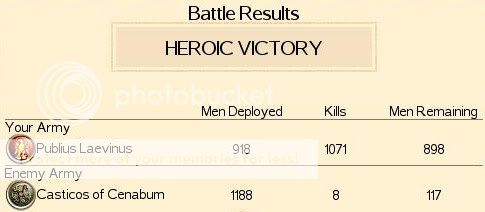

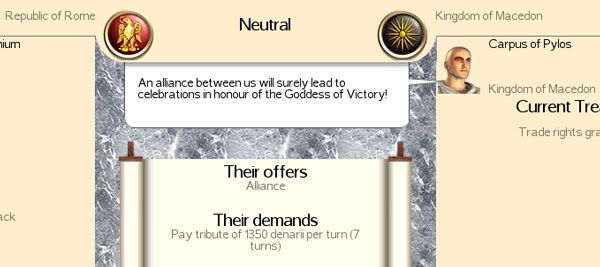
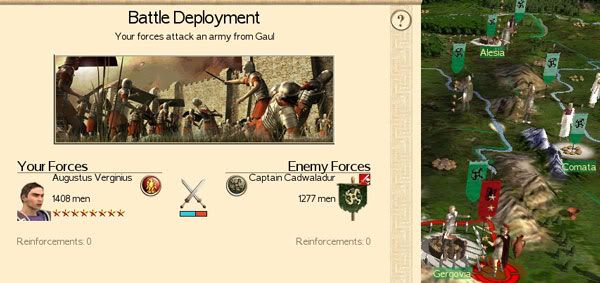
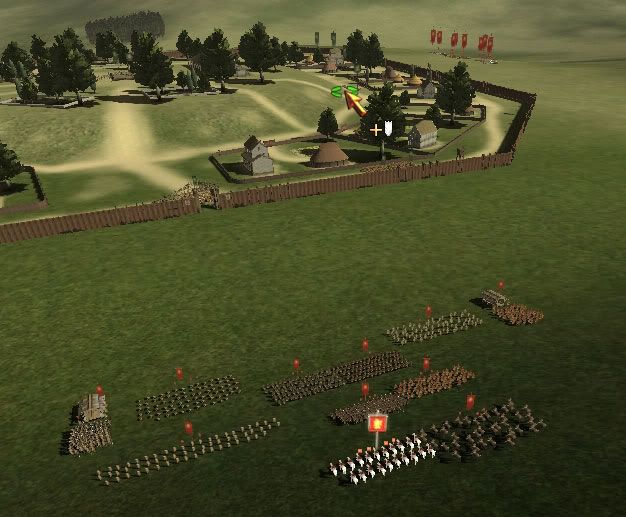




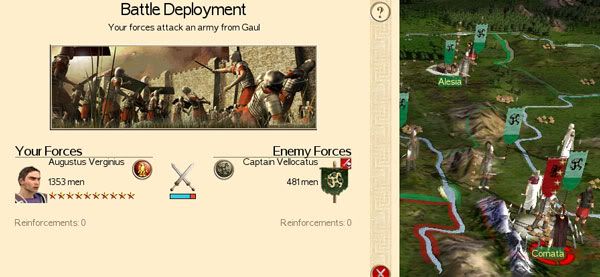
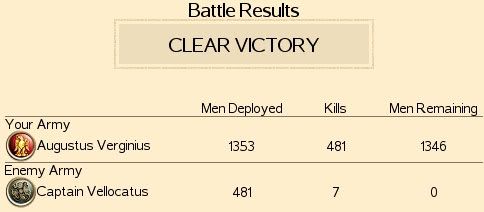


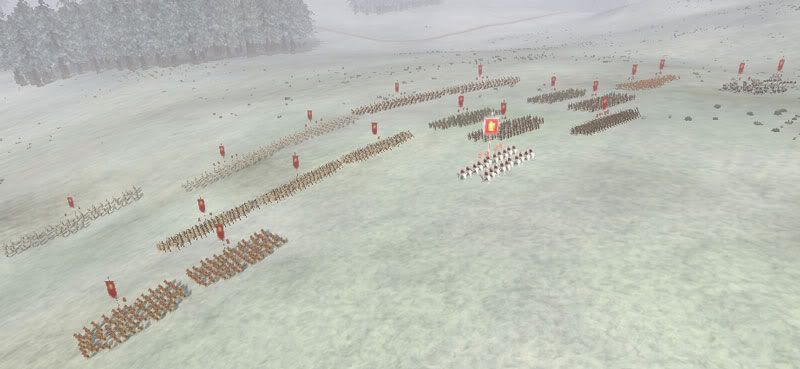
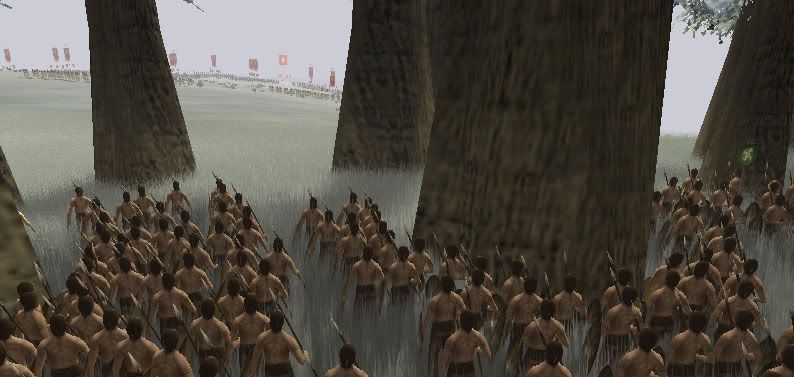
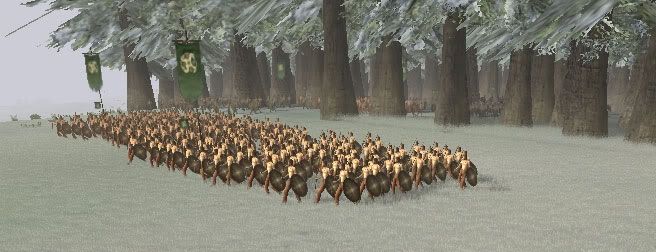
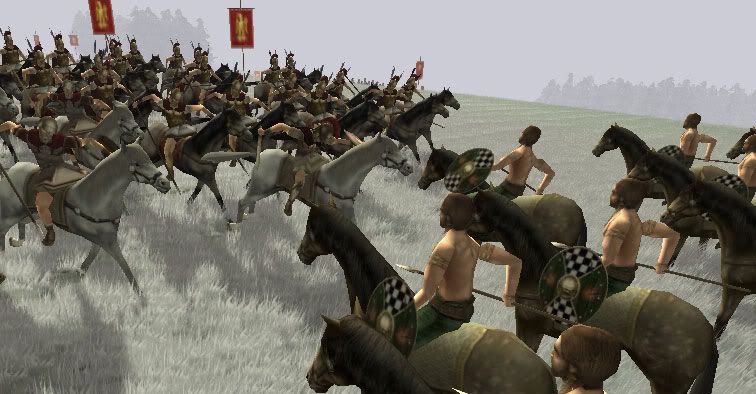

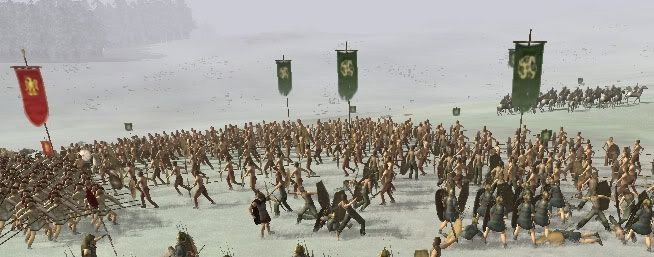
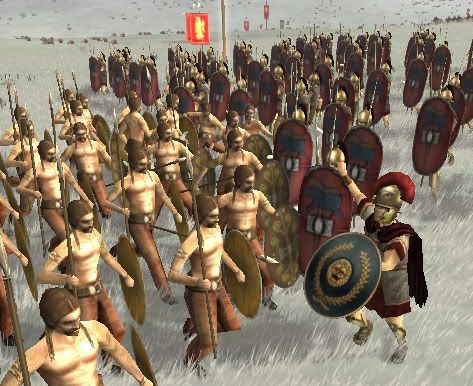
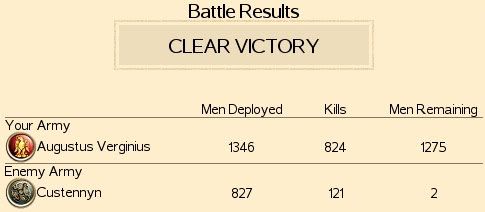

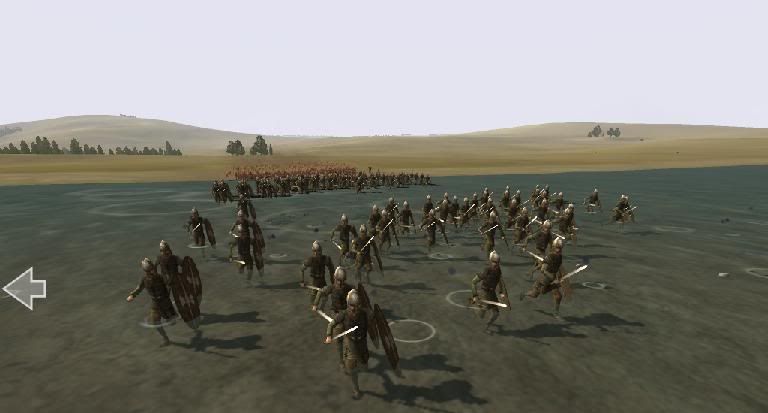

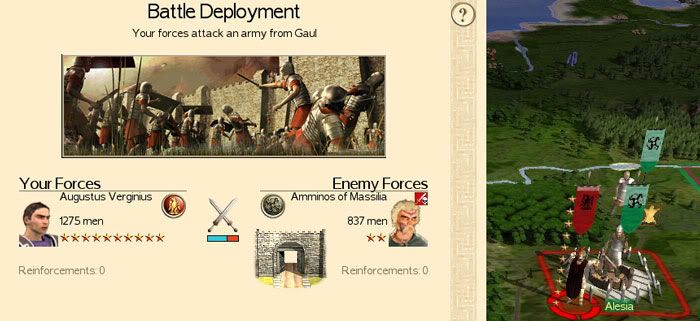
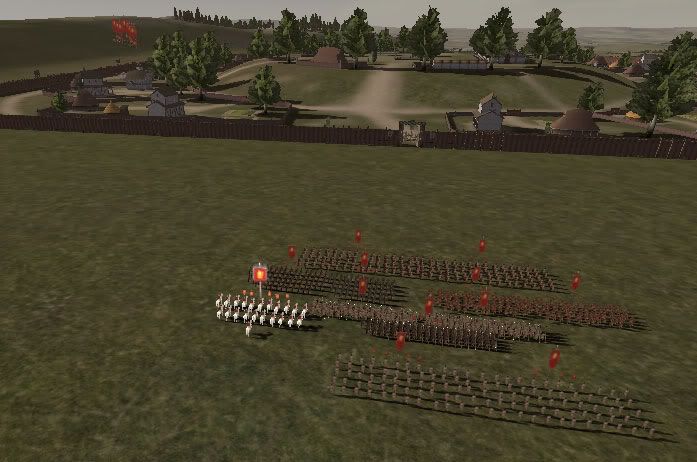
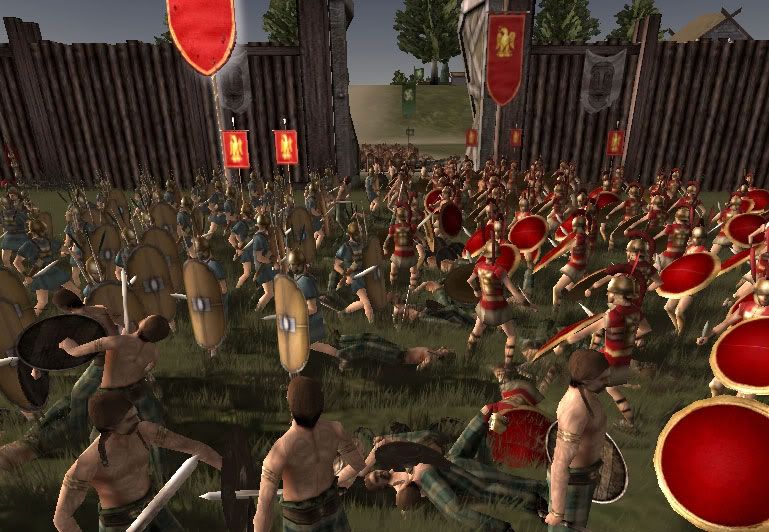
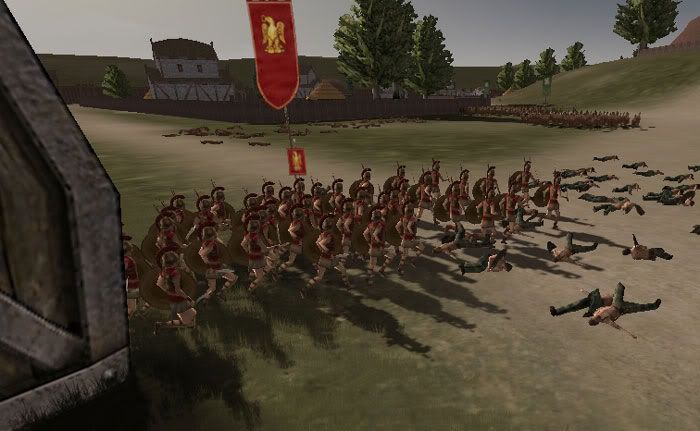
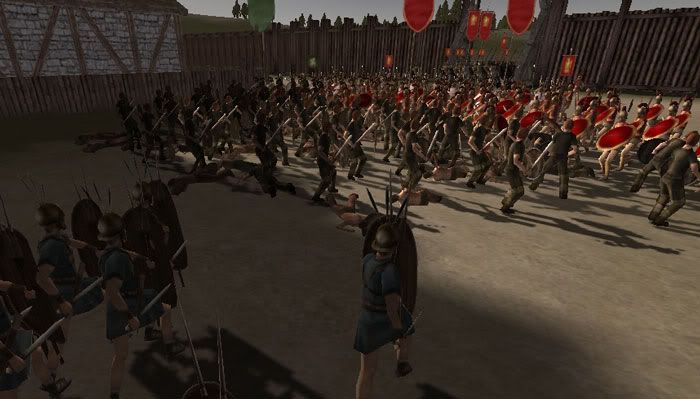
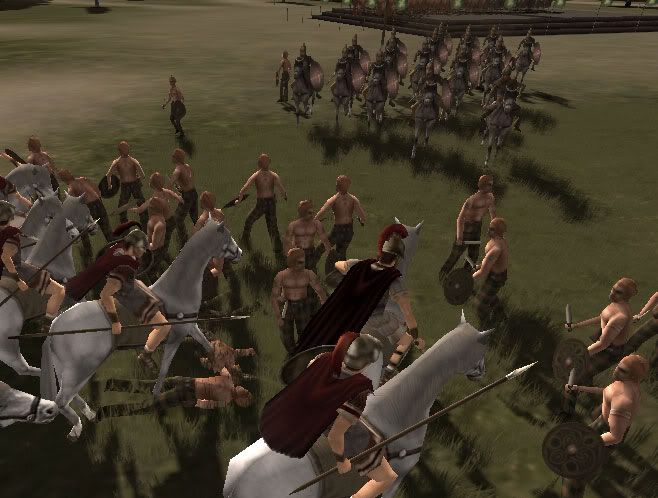

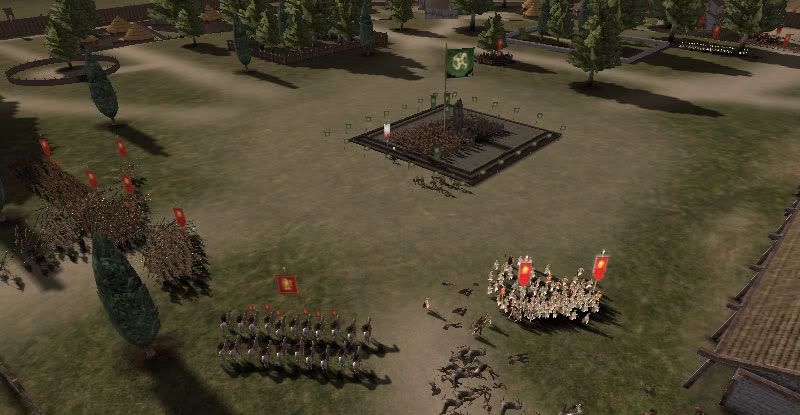


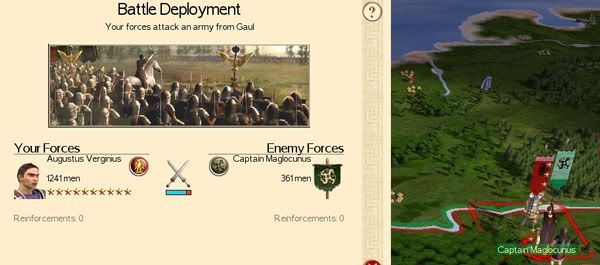
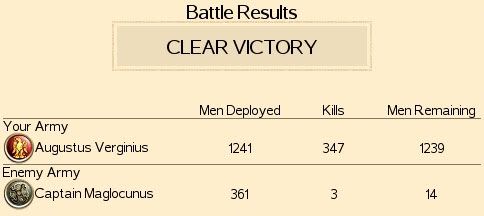
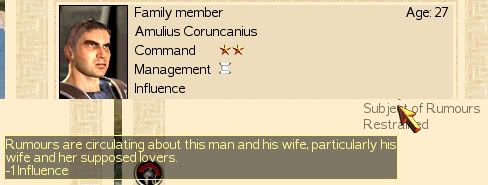
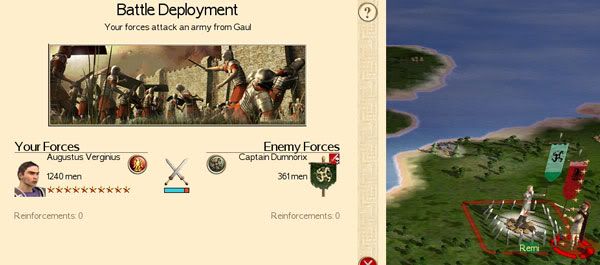


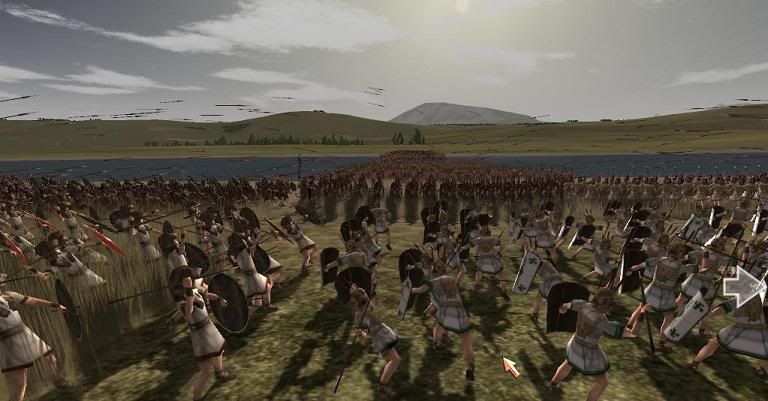
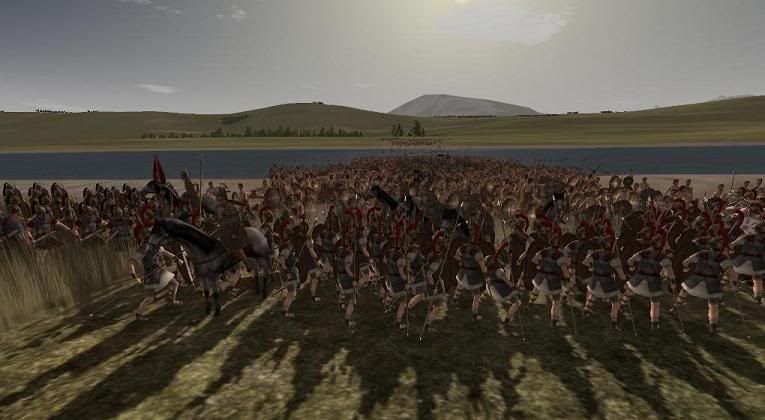


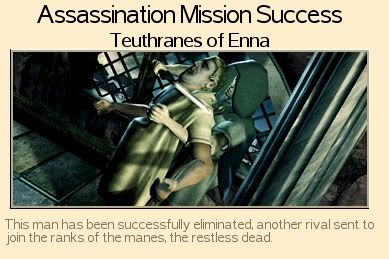
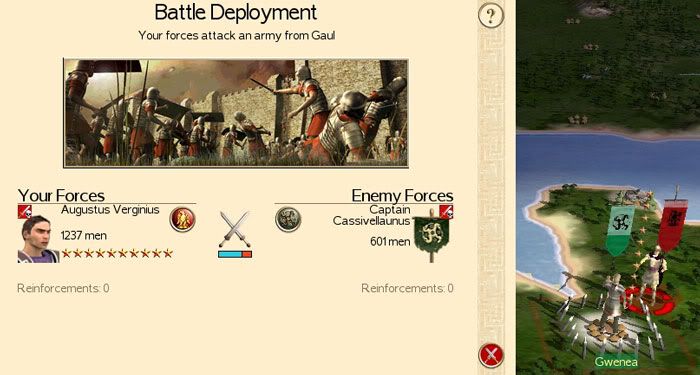

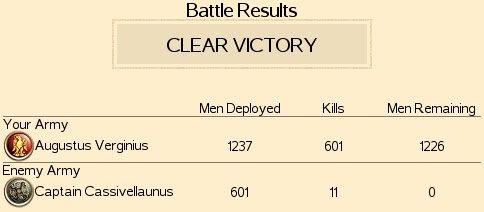
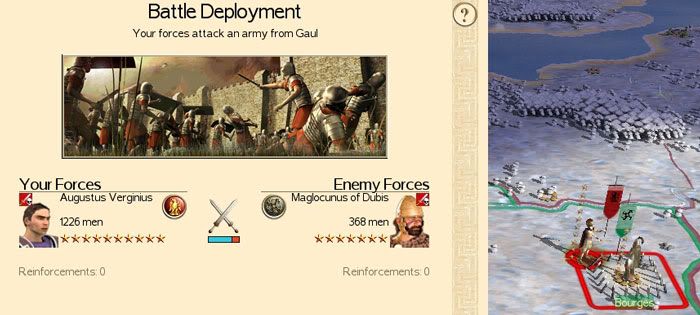
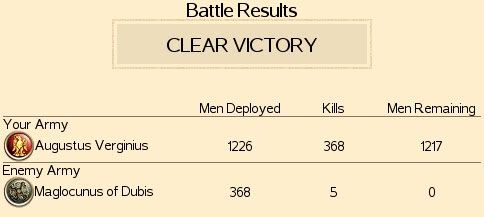
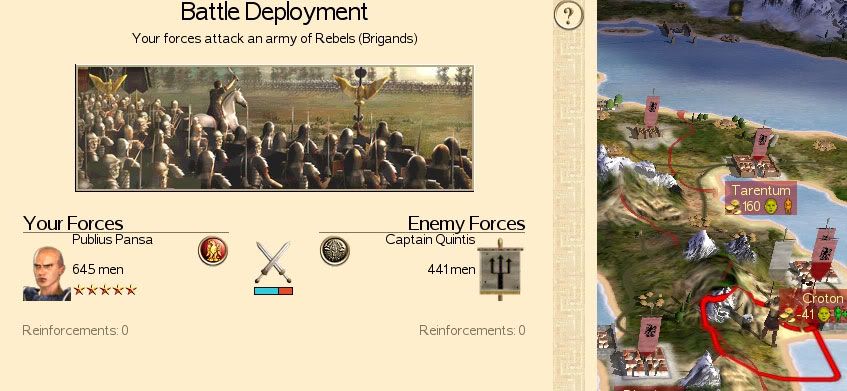

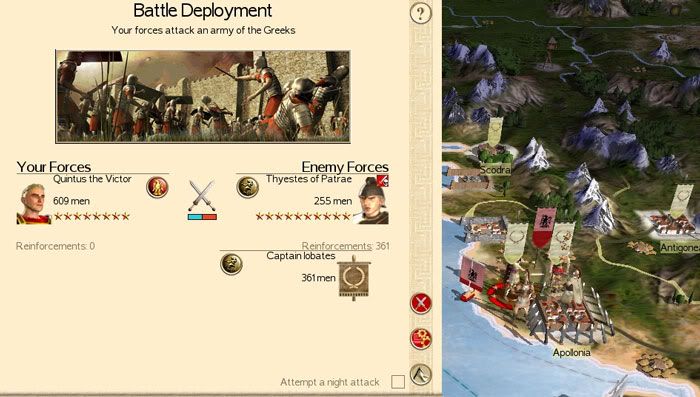



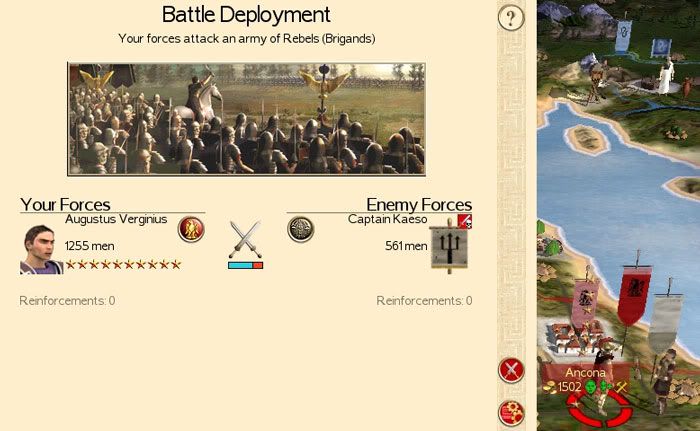
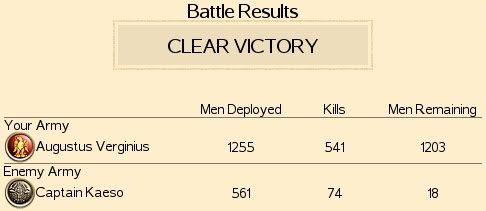
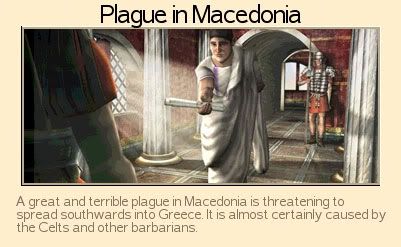

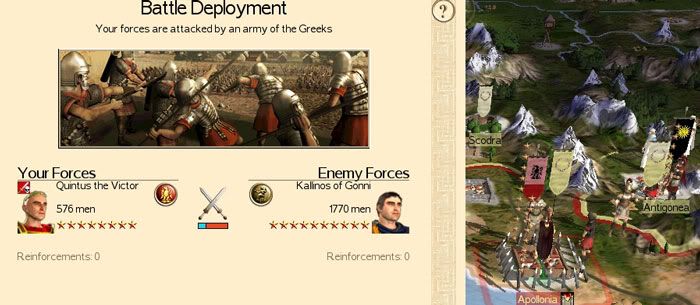
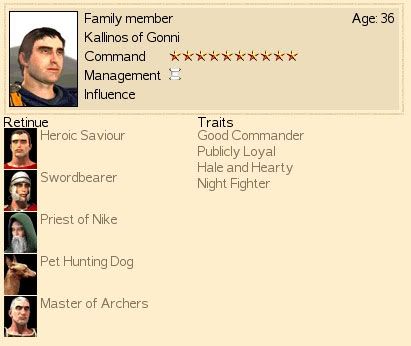

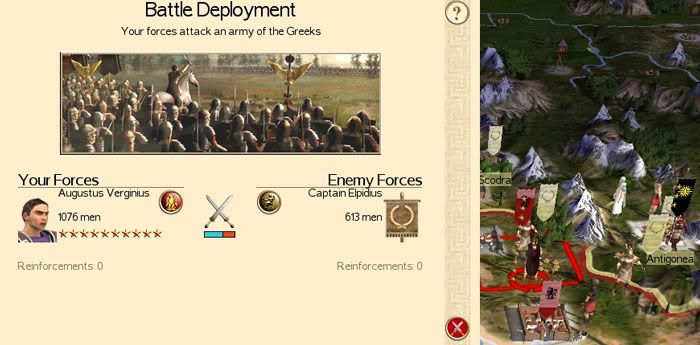

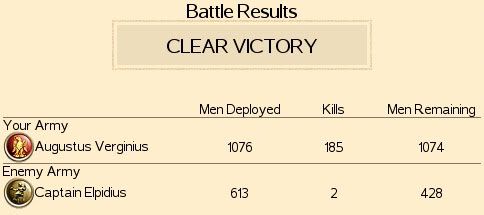
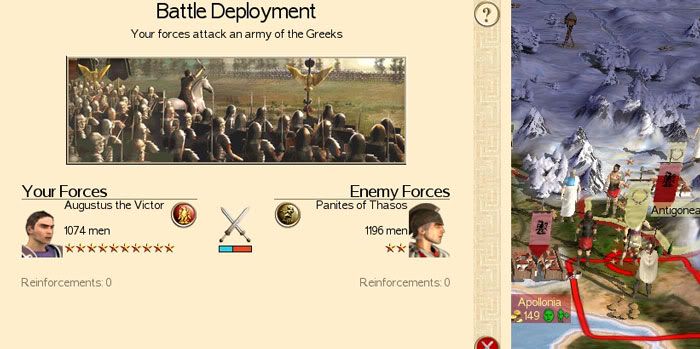
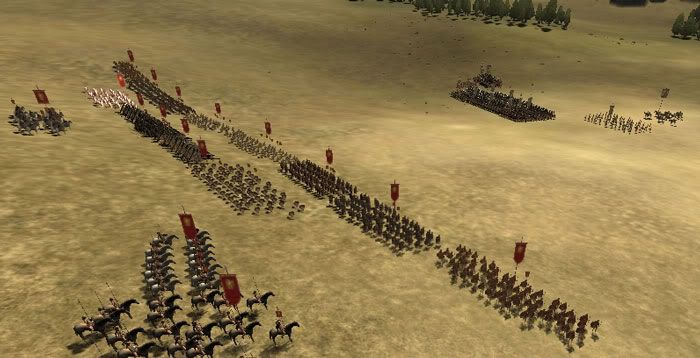
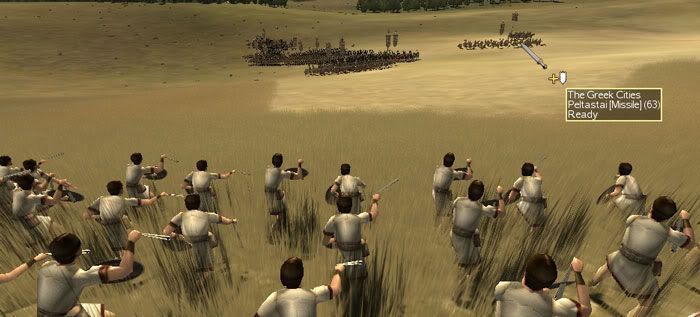
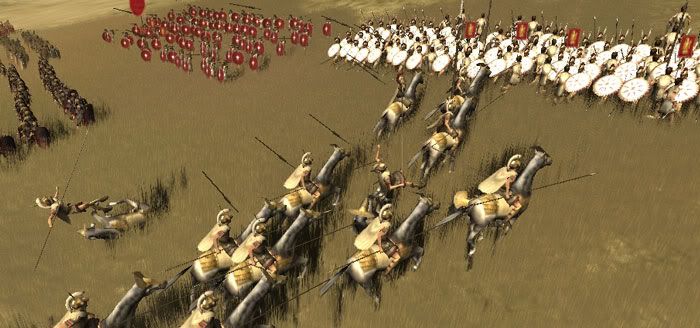
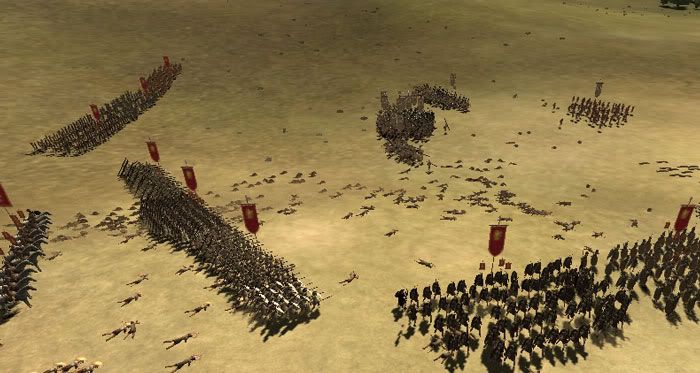
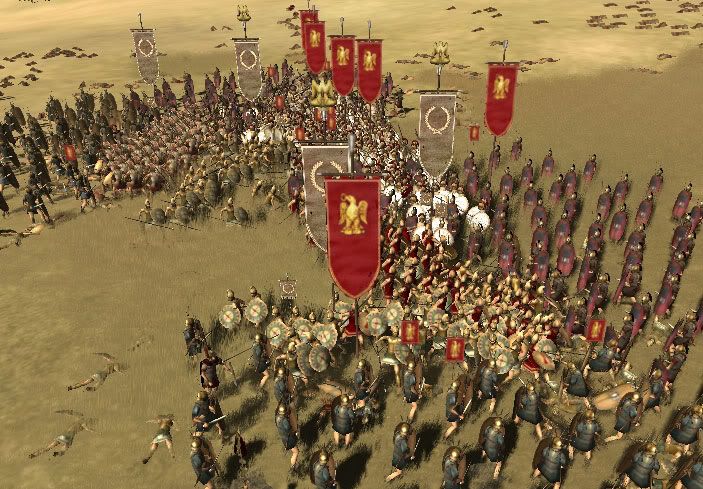
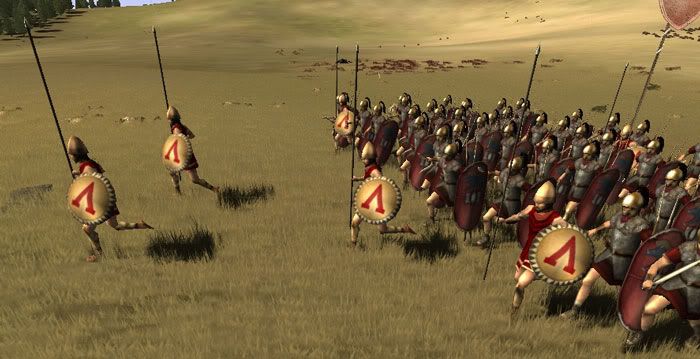
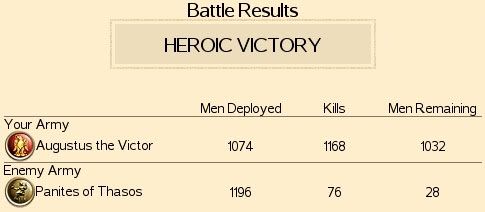
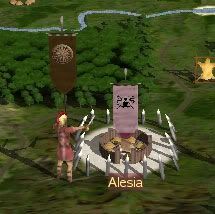
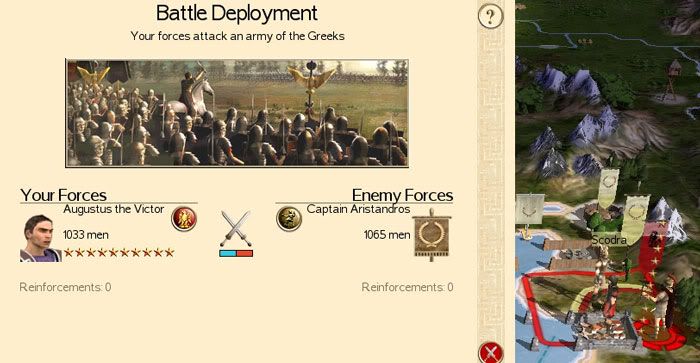










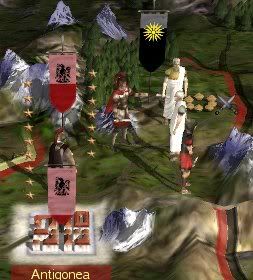

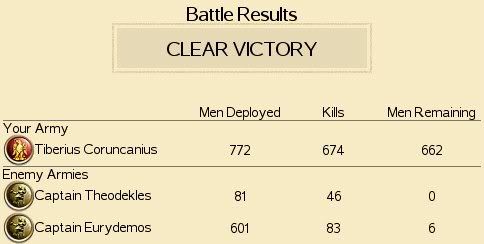

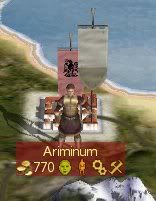


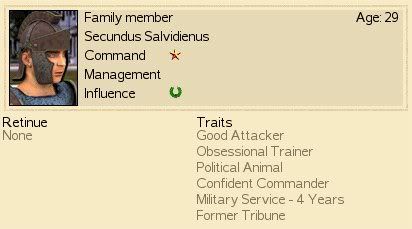







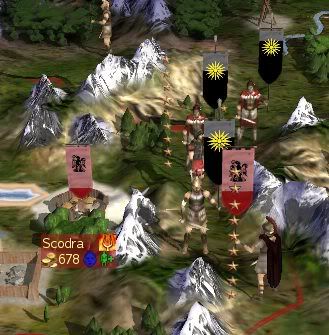






















































Bookmarks